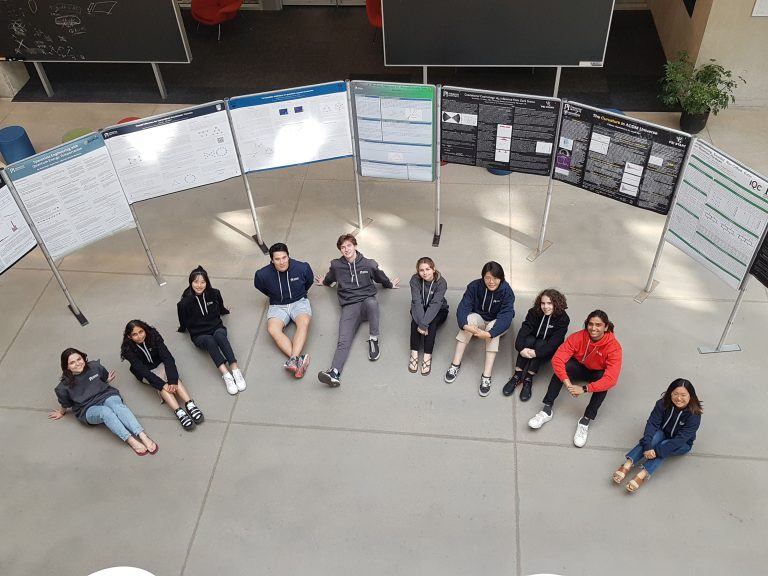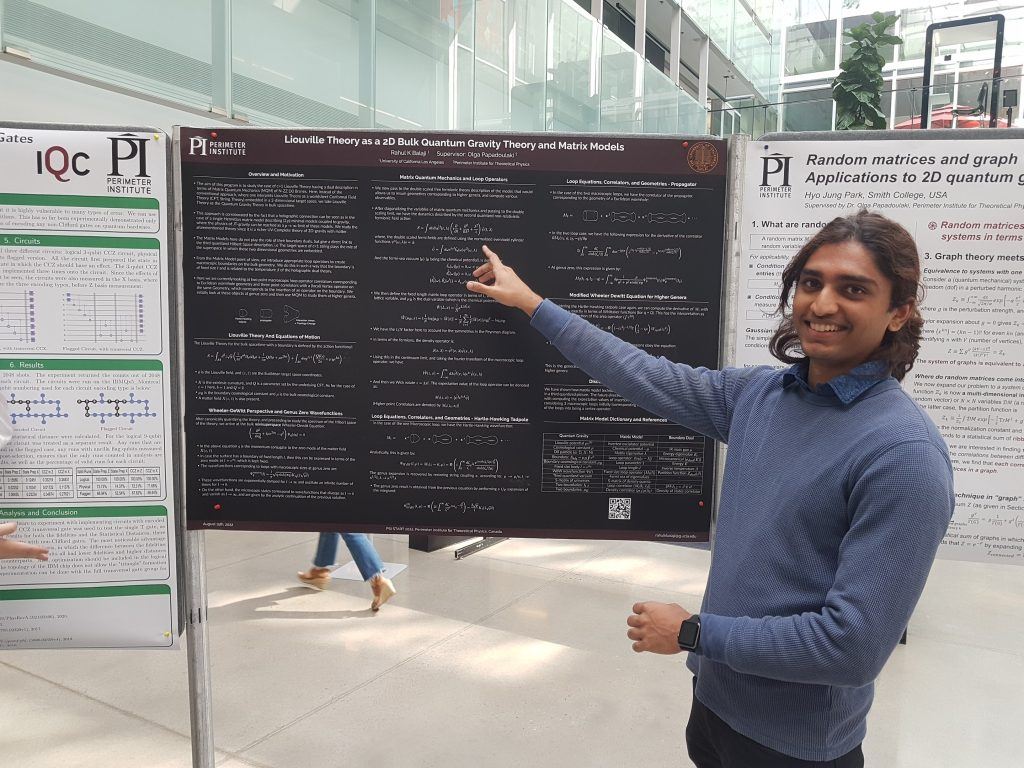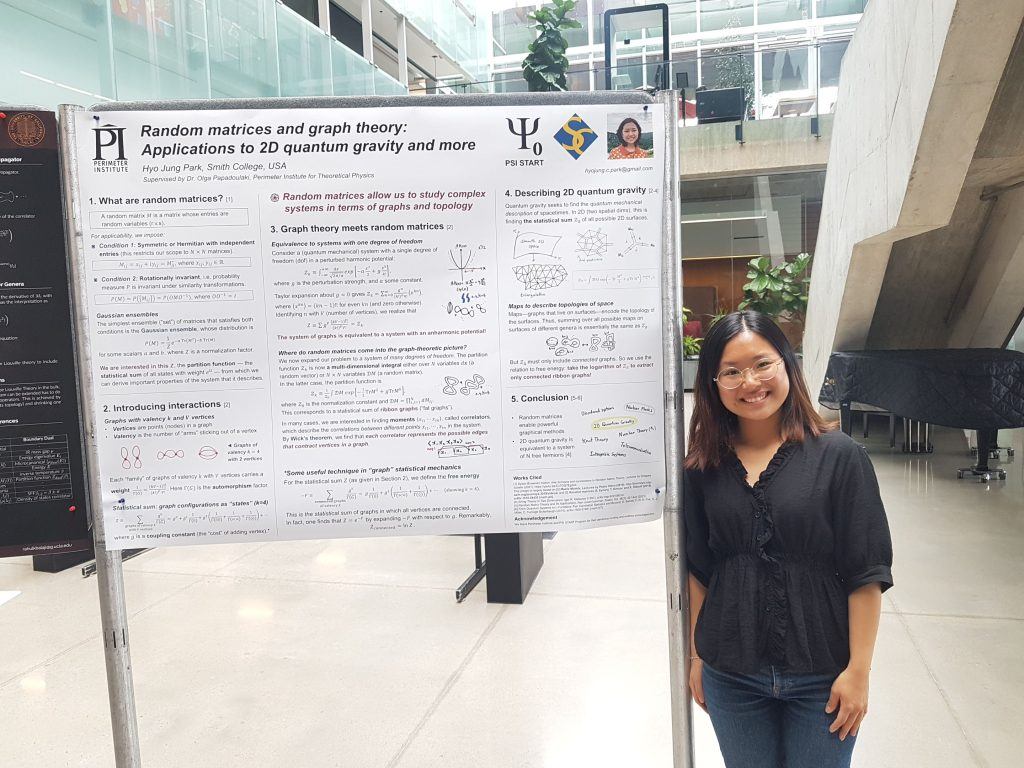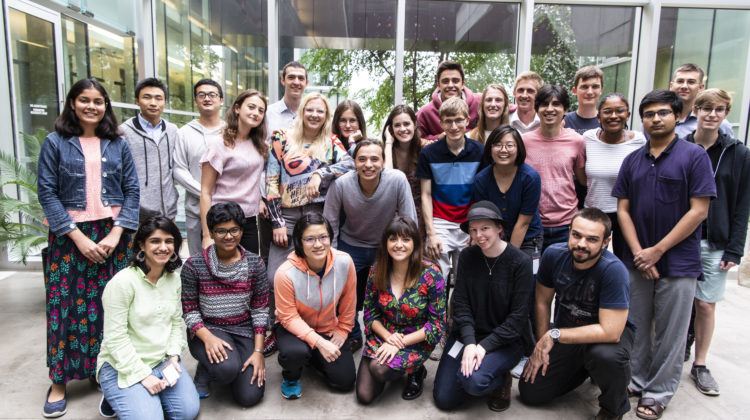PSI START opens pathways for future physicists
This summer, dozens of students took a quantum leap forward in their studies, guided by physics researchers with a passion for training the next generation.

Rahul Balaji, an undergraduate student from India, has always had a passion for learning. Back in his high school days, for example, his curiosity often led him to seek out resources beyond what his school could offer, and one day he discovered a set of online lectures – created as part of the Perimeter Scholars International (PSI) program – that captivated his attention.
“I remember just watching those lectures and learning concepts and stuff. And ever since then I knew what Perimeter was,” he said. “This year, I was looking for some internships to apply to and I found Perimeter offering this program, and I was like, ‘This is perfect!’”
One successful application later, Balaji’s journey brought him to Perimeter to study physics as a PSI START intern. Along with a group of like-minded peers, he spent 16 weeks this summer engaged in the very topics that first caught his attention online all those years ago.

PSI START is a unique program. It is designed to offer students in the final year of their undergraduate studies an extra boost, bringing them into contact with physicists who can walk them through some of the more challenging – and promising – aspects of fundamental physics research.
The program has two parts: an online school and an internship program.
The online school runs for 10 weeks and combines synchronous lessons with independent study on various topics. In 2022, course offerings covered path integrals, symmetries, relativistic quantum theories, and numerical methods – all topics not typically covered in undergraduate curriculums.
One of Balaji’s peers in the program, Hyo Jung (Catherine) Park, found the online school to be a valuable opportunity to expand her understanding. “I really appreciate that we can learn some theoretical physics that we cannot learn in our undergraduate institutions,” she said.
For the last two weeks of the online school, students work on mini-projects in small groups under the supervision of Perimeter researchers. Some of these mini-projects involve small research problems, and others are pedagogical introductions to advanced topics in theoretical physics.
With the classes and mini-projects combined, the online school provides a solid foundation for any undergraduate hoping to ‘level up’ their grasp of fundamental physics. But for students like Balaji and Park who want to take their newfound knowledge and apply it in practice, the 16-week PSI START internship offers an even more immersive experience. As paid research assistants, interns have the opportunity to work closely with researchers on site at Perimeter in Waterloo.
“As soon as you come to this place, there are people working all around you,” says Balaji. “There are blackboards everywhere. And it’s just an environment where everyone is so deeply into physics, their respective areas, and so many people that I can talk to, learn from, and I’m just a sponge over here, trying to absorb information. That’s been really valuable.”
During his first couple of months at Perimeter, Balaji was thrilled to engage in a conversation about philosophy with Perimeter Faculty member Lee Smolin and was inspired by some advice from another faculty member, Robert Spekkens, about seeking out fundamental truths.
“I guess that encapsulates the spirit of this place, which is, we do some hard stuff in theoretical physics. And often it can be easy to lose sight of what we’re all going towards and what drives us. And it’s so vibrant here…[with] that motivation to go towards truth. I would say that was something really special,” Balaji says.

Park similarly praised the interactive nature of the internship experience, finding herself thrilled to be so fully immersed in Perimeter’s vibrant research environment. It also helps to be with a group of peers who share the same passions, she emphasized.
“[My fellow interns] are very kind and we are all like-minded,” said Park. “We all love math and physics, but we are also very different: we’re all from different countries and different backgrounds, but we get along very well. So I think I made lifelong friends doing this internship. I really love it.”
Sixty-two students from around the world participated in the PSI START online school this year, and there are 11 interns from eight countries including India, Georgia, China, Ecuador, and Brazil. Dan Wohns, Assistant Director of Academic Programs at Perimeter, explains that the program is specifically designed to offer exceptional training in research skills and scientific communication to students across national boundaries.
“The PSI START participants are a diverse group of Canadian and non-Canadian students from all over the world,” says Wohns. “To encourage applications from candidates with a wide variety of backgrounds, the only requirement to apply for PSI START is an intention to apply to a graduate program in theoretical physics in 2023. From the approximately 500 applicants, we selected a diverse class with a demonstrated ability and motivation to learn physics.”
A key ingredient in PSI START’s success is the program’s commitment to creating a welcoming and vibrant learning atmosphere. “Sometimes we think that theoretical physics is too inaccessible,” says Park, “but I wanted to say that, especially at Perimeter…they are making real efforts to make it really supportive and inclusive.”
Balaji agreed. “Physics usually has this reputation of being very to-the-point and very cold, but that’s not here at all. It’s so warm everywhere. And that makes this a fun place.”
The 2022 PSI START program – both the online school and the internship – wrapped up in late August. But plans are already in the works for next year, and a new batch of students will have the opportunity to participate.
“I would definitely recommend the program,” says Balaji. “If you already know you want to work in theoretical physics, or you’re passionate about it and have been for a long time, this is the place to come to, because this is where…you can realize it to the fullest potential.”
To be notified when applications open for the 2023 PSI START programs, sign up here.
The PSI START program is supported by Michael Serbinis and Laura Adams.























































































